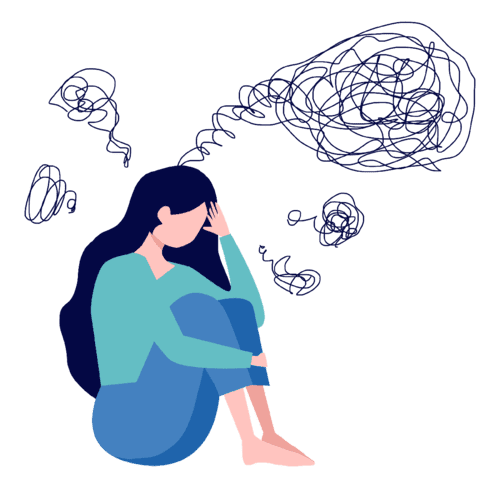Emotional Contamination OCD Assessment
Free Emotional Contamination OCD Assessment

What is Emotional Contamination OCD Assessment?
Emotional Contamination OCD assessment involves evaluating an individual’s sensitivity to negative emotions and their subsequent avoidance behaviors. It focuses on the extent to which they perceive emotions, such as guilt or disgust, as ‘contaminants’ that can spread to objects, places, or people. This assessment helps identify the severity of obsessions and compulsions related to emotional contamination, aiding therapists in tailoring effective treatment strategies, often involving Exposure and Response Prevention (ERP) therapy. Understanding the unique triggers and behaviors of emotional contamination is crucial in devising a targeted plan to alleviate distress and enhance the individual’s quality of life.
Who can benefit from this Emotional Contamination OCD Assessment?
The Emotional Contamination OCD Assessment can benefit individuals who experience intrusive and distressing emotions triggered by everyday objects, places, or people due to perceived contamination. Those struggling with excessive fears of being emotionally tainted, avoiding triggers, and engaging in compulsive behaviors to alleviate distress can use this assessment. It helps them identify symptoms, assess the severity of emotional contamination, and understand its impact on daily life. This assessment is a valuable tool for individuals seeking to gain insight into their condition, enabling them to make informed decisions about seeking professional help and tailored treatment strategies.
Emotional Contamination OCD Assessment Accuracy
Emotional Contamination OCD assessment accuracy can vary. Proper assessment by a trained mental health professional is crucial. This involves in-depth evaluation of symptoms, triggers, and impact on daily life. Self-assessment tools might offer insights, but a comprehensive clinical assessment provides a more accurate diagnosis. Early and accurate assessment is vital for effective treatment planning and management.
Types of Emotional Contamination OCD Assessment
Symptom Identification:
Identify the specific emotions or emotional experiences that trigger distress. These could be feelings of guilt, shame, fear, or other negative emotions.
Trigger Analysis:
Understand the situations, thoughts, memories, or events that trigger emotional contamination obsessions. For instance, certain memories or thoughts might trigger intense guilt.
Avoidance Behaviors:
Explore the ways in which the individual tries to avoid or suppress the triggering emotions. Avoidance behaviors can include avoiding specific situations, people, or memories.
Compulsive Behaviors:
Identify compulsive behaviors that are carried out to neutralize or alleviate the distress caused by emotional contamination. These could involve mental rituals, reassurance-seeking, or physical behaviors.
Impact on Functioning:
Assess how emotional contamination OCD is impacting the individual’s daily life, relationships, work, and overall well-being.
Physical Symptoms:
Emotional contamination OCD can sometimes manifest with physical sensations such as discomfort, nausea, or tension. Evaluate whether physical symptoms are present and how they relate to emotional triggers.
Handling Emotional Contamination OCD Issues
Emotional Contamination OCD is a subtype of Obsessive-Compulsive Disorder (OCD) where individuals experience intense distress or discomfort due to a perceived emotional “contamination” from people, places, or things. This can lead to compulsive behaviors aimed at reducing or eliminating this distress. Here are some strategies for handling Emotional Contamination OCD:
- Educate Yourself: Learn about Emotional Contamination OCD to understand its nature and how it differs from real-world contamination. Knowledge can help you challenge irrational thoughts.
- Therapy: Cognitive Behavioral Therapy (CBT) with a focus on Exposure and Response Prevention (ERP) is a highly effective treatment for this subtype of OCD. ERP involves gradually exposing yourself to situations or triggers that evoke emotional distress and refraining from engaging in compulsions.
- Identify Triggers: Recognize the situations, people, or places that trigger your emotional contamination fears. This awareness can help you target your exposures effectively.
- Exposure Practice: With the guidance of a therapist, systematically expose yourself to the triggers that evoke emotional contamination. Start with less distressing triggers and gradually work your way up to more challenging ones.
- Resist Compulsions: Refrain from engaging in rituals or compulsive behaviors that you typically use to reduce emotional distress. This is a crucial step in breaking the cycle of OCD.
- Mindfulness: Practice mindfulness meditation to help you observe your thoughts and emotions without judgment. This can improve your tolerance of distress and decrease your need to engage in compulsions.
- Accept Uncertainty: Recognize that uncertainty is a part of life. Embracing uncertainty can help reduce the need for compulsive behaviors that provide temporary relief from distress.
- Emotion Regulation: Learn strategies for regulating your emotions, such as deep breathing, grounding techniques, and progressive muscle relaxation. These can help you manage emotional distress more effectively.
- Challenge Negative Thoughts: Work with a therapist to challenge the negative thoughts and beliefs associated with emotional contamination. Replace them with more rational and balanced thoughts.
- Gradual Progress: Be patient with yourself and recognize that progress takes time. Small steps toward facing your fears can lead to significant improvements over time.
- Self-Compassion: Treat yourself with kindness and understanding. Recovery from Emotional Contamination OCD is a process, and setbacks are a normal part of the journey.
- Seek Professional Help: A licensed therapist with experience in treating OCD is essential for guiding you through exposure exercises and teaching you effective coping strategies.
Remember that the journey to managing Emotional Contamination OCD requires commitment, but it is possible to achieve significant improvement with the right approach, support, and professional guidance. If you haven’t already, consider reaching out to a mental health professional who specializes in OCD treatment to create a tailored plan for your recovery.

